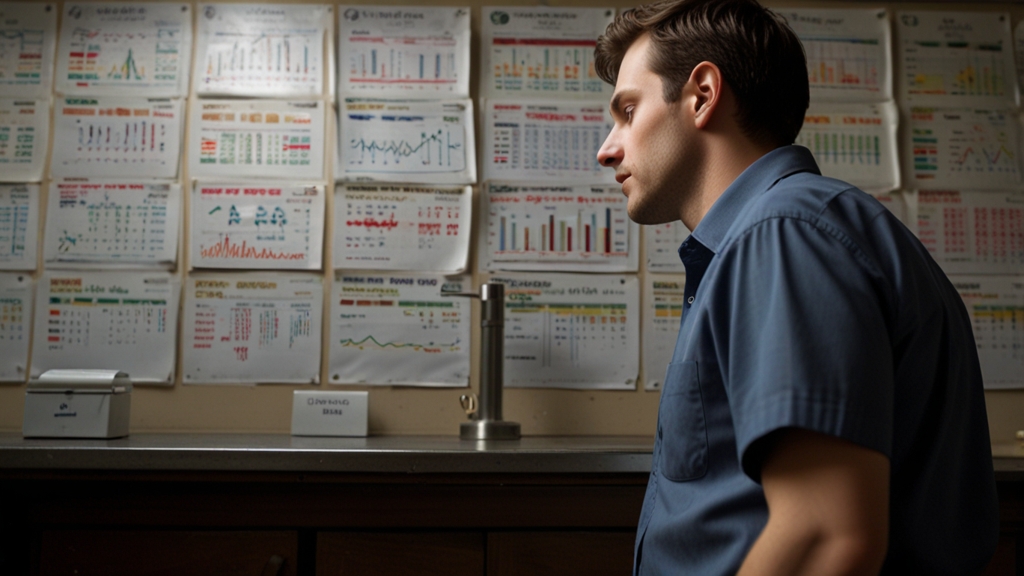Statistics: The Silent Force Behind Major Life Decisions
In a world where decisions drive our everyday existence, statistics remain one of the most impactful yet unheralded tools at our disposal. From finance to healthcare, from sports to social sciences, statistical analysis provides an objective basis for making significant life choices. While its influence might not always be overtly visible, statistics play a crucial role in shaping our lives in myriad ways.
The Power of Data in Health and Medicine
Few fields leverage the power of statistics as robustly as healthcare. Medical research hinges entirely upon statistical validation to ensure the efficacy and safety of treatments. Clinical trials use statistical methods to analyze the effects of new medications, thereby affecting drug approvals and, consequently, patient wellness worldwide.
"Statistical thinking will one day be as necessary for efficient citizenship as the ability to read and write." - H.G. Wells
Beyond medications, statistics guide public health policies, influence the design of health insurance policies, and project potential disease outbreaks. For instance, during the COVID-19 pandemic, statistical models were crucial for predicting the virus's spread, shaping government responses, and informing individual behavior.
Economic Decisions and Financial Planning
Another domain that relies heavily on statistics is finance. Investors and financial planners use statistical tools to assess market trends, evaluate risk, and allocate resources effectively. Statistical analysis provides a foundation for everything from individual retirement plans to corporate financial strategies, significantly impacting wealth creation and management.
Consider how credit scores work—these are based on statistical models predicting the likelihood of an individual repaying a loan. A higher score generally indicates lower risk, affecting loan approvals, interest rates, and even job opportunities in certain sectors.
Education and Career Development
The educational sector also relies on statistical analysis to make informed decisions. From determining the effectiveness of teaching methods to understanding student performance and retention rates, statistics help shape educational policies and programs.
"In God we trust; all others bring data." - W. Edwards Deming
For students, statistical analysis plays a role in standardized testing and university admissions. Data-driven insights help institutions optimize curricula and allocate resources, ultimately striving for better educational outcomes.
Consumer Behavior and Marketing
In business, understanding consumer behavior is critical for success. Companies utilize statistics to analyze market trends, gauge customer satisfaction, and measure the effectiveness of marketing campaigns. Big data analytics, which involves complex statistical methods, allows businesses to personalize experiences, foresee customer needs, and stay competitive in ever-evolving markets.
Moreover, statistics drive pricing strategies, product developments, and sales forecasts. Businesses that adeptly handle statistical insights are much more likely to thrive in today’s data-driven marketplace.
Social Sciences and Public Policy
Public policies are often formed based on statistical insights into societal issues. Whether it’s poverty alleviation, crime reduction, or environmental policies, data-driven decisions provide a more accurate and effective approach to tackling these challenges.
"If you can't measure it, you can't improve it." - Peter Drucker
Social scientists use statistics to understand human behavior and social phenomena, helping to create policies that promote social welfare. By employing rigorous statistical methods, policymakers can rely on evidence rather than intuition, ensuring more equitable and just societal outcomes.
Conclusion
In an era of information abundance, statistics are more than just numbers—they are a silent but powerful force guiding major life decisions. They offer a lens through which complex realities can be understood, helping individuals and institutions make informed choices that can improve quality of life, economic stability, and social justice.
Whether you're aware of it or not, every important decision you make is likely influenced by some form of statistical analysis. Embracing this silent force can empower you to make more informed, effective, and beneficial decisions in all aspects of life.








